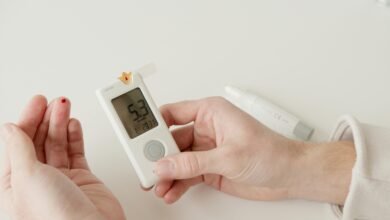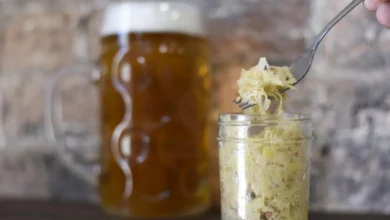When it comes to skincare, many people focus solely on products—moisturizers, serums, and toners. But there’s a widely held belief that drinking more water can significantly enhance your skin’s appearance and health. So, does drinking water really help your skin? This article explores that question in depth.
Although skincare products play a major role, internal factors like hydration are also vital. In fact, water is essential for nearly every function in the human body. But how much does it actually impact your skin? Let’s find out.
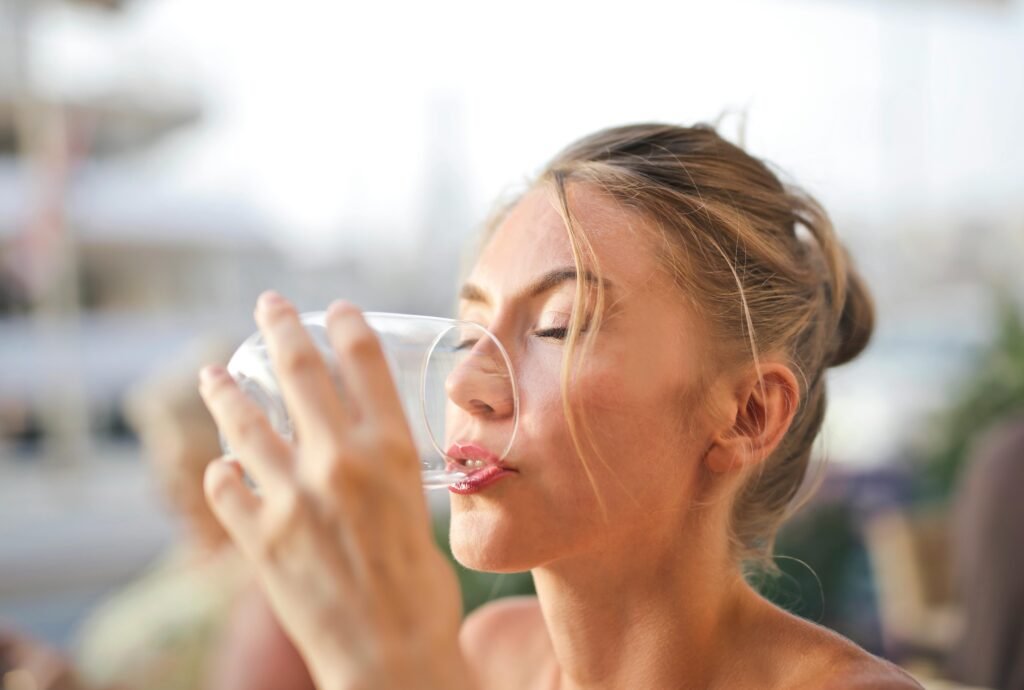
The Science Behind Skin Hydration
To answer the question, does drinking water really help your skin, we need to understand what skin hydration actually means. The skin is composed of multiple layers, and the outermost layer, the stratum corneum, holds moisture to keep the skin smooth and soft.
Water intake helps in the hydration of internal organs and tissues. However, research suggests that while water consumption supports overall bodily function, the link between drinking water and skin appearance isn’t as direct or dramatic as many assume.
Still, staying adequately hydrated does affect skin physiology, especially in preventing dryness and improving elasticity. So again, does drinking water really help your skin? In many ways, yes—but with some limitations.
Benefits of Drinking Water for Skin Health
So far, the benefits appear subtle. But let’s dive deeper into specific ways water supports your skin.
1. Improves Skin Elasticity
Studies have shown that hydrated skin retains better elasticity. As we age, skin loses its flexibility and becomes saggy. Drinking sufficient water may slow down this process by keeping cells plump and nourished. Hence, when you ask, does drinking water really help your skin?, consider that improved elasticity plays a crucial role in youthful skin.
2. Flushes Out Toxins
Proper hydration helps flush out toxins through urine and sweat. When the body eliminates waste efficiently, skin breakouts and dullness may reduce. This doesn’t mean water cures acne, but staying hydrated supports better overall skin function.
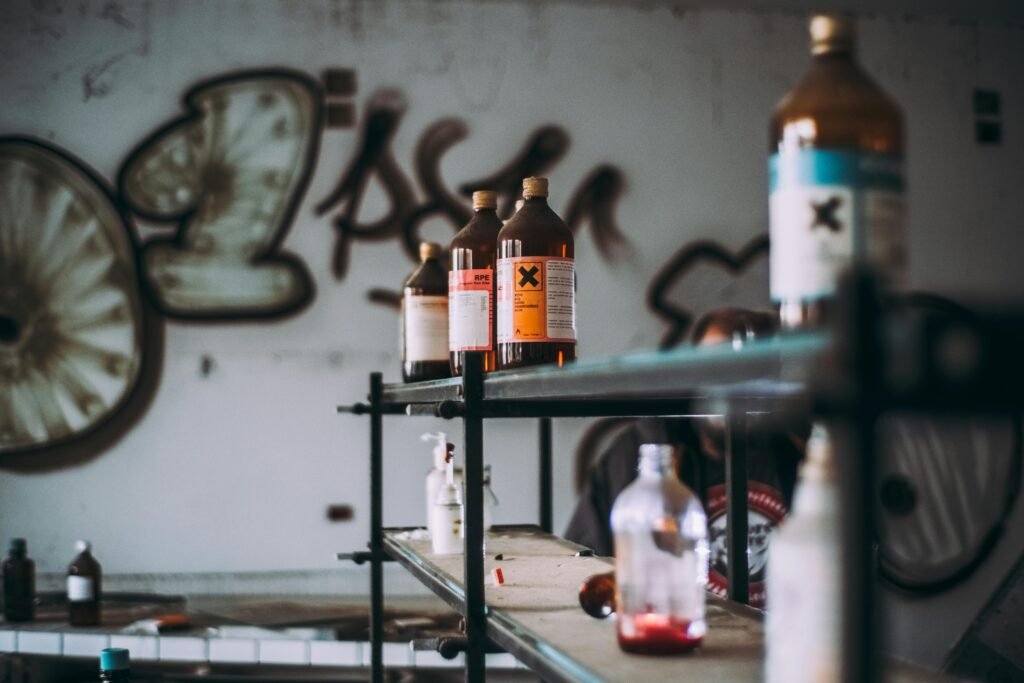
3. Prevents Dryness and Flakiness
Dry skin is often a sign of dehydration. Without enough water, the skin can become rough, cracked, or flaky. Consistently drinking water helps maintain moisture levels from the inside, although topical moisturizers are still essential.
So, does drinking water really help your skin stay moisturized? The answer is yes, particularly when combined with an effective topical regimen.
4. Promotes Blood Flow and Nutrient Delivery
Water plays a key role in blood circulation. Improved circulation helps deliver oxygen and nutrients to skin cells, promoting repair and regeneration. Better blood flow also contributes to a natural glow.
How Much Water Should You Drink for Skin Benefits?
General recommendations suggest drinking 8 glasses (about 2 liters) of water per day. However, individual needs vary depending on activity level, climate, diet, and overall health.
Still, when questioning does drinking water really help your skin, consistency is key. Make hydration a daily habit to see sustained benefits.
Tips to Stay Hydrated:
- Carry a reusable water bottle
- Set reminders on your phone
- Add fruit slices for flavor
- Eat water-rich foods like cucumbers and oranges
Common Myths and Misconceptions
Let’s tackle some misconceptions around this popular topic. After all, does drinking water really help your skin as much as social media claims?
Myth 1: Drinking Gallons of Water Clears Acne Instantly
Reality: While water supports detoxification, acne is usually caused by bacteria, clogged pores, or hormonal imbalances. Drinking water helps indirectly but is not a cure.

Myth 2: Water Replaces Moisturizers
Reality: Drinking water hydrates the body, but the outer layer of the skin still needs protection from environmental stressors. Use moisturizers to lock in moisture.
Myth 3: You Only Need to Hydrate in Hot Weather
Reality: Skin loses moisture year-round. Indoor heating, cold air, and wind can all dry out your skin. So even in winter, staying hydrated is essential.
Does Drinking Water Help with Wrinkles?
Wrinkles are caused by aging, sun damage, and loss of collagen. Hydration can improve skin plumpness and reduce the appearance of fine lines, but it won’t erase deep wrinkles. That said, consistently drinking water supports overall skin tone and texture, making wrinkles less noticeable.
Once more, does drinking water really help your skin fight aging? It helps, but it’s not a miracle fix. Combine hydration with sun protection, a healthy diet, and a solid skincare routine for best results.
What Dermatologists Say
Most dermatologists agree that hydration supports healthy skin. However, they also emphasize that drinking water should be one part of a comprehensive approach. Topical skincare, sun protection, diet, and sleep all contribute significantly.
Dermatologist Dr. Whitney Bowe notes that hydrated skin appears fuller and more radiant. However, she also warns not to overestimate its effects, saying the benefits are subtle but noticeable over time.
So again, does drinking water really help your skin? According to experts, yes—just don’t expect overnight transformation.
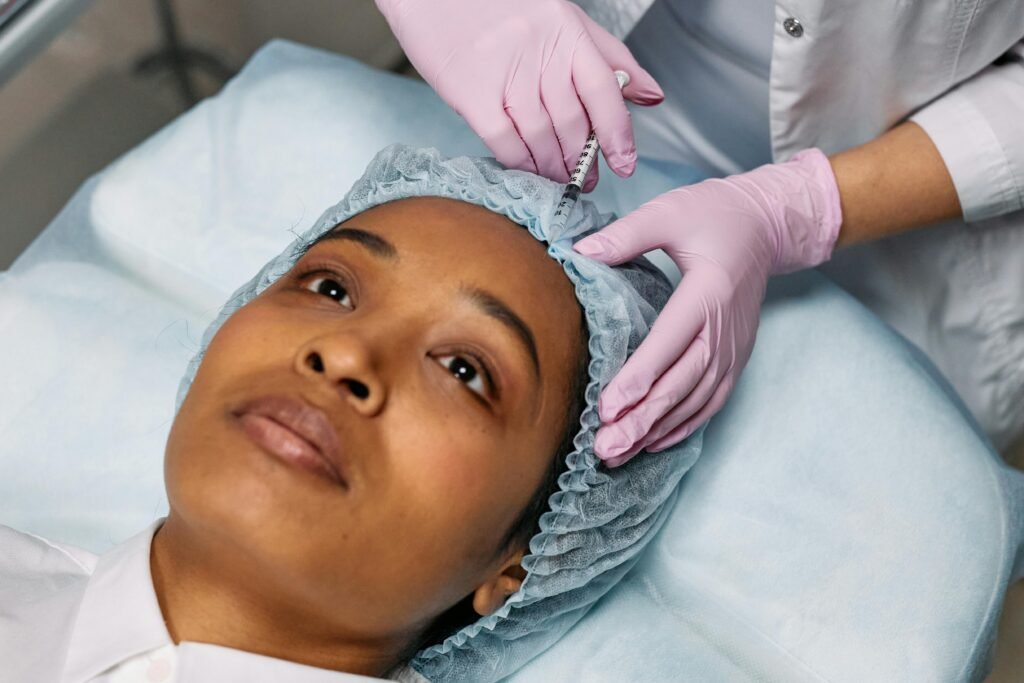
The Role of Diet and Water-Rich Foods
Hydration doesn’t come from water alone. Many foods contribute to your daily fluid intake. Incorporating water-rich fruits and vegetables can boost skin health.
Best Hydrating Foods:
- Watermelon
- Cucumber
- Celery
- Lettuce
- Strawberries
Adding these to your meals provides hydration plus antioxidants, which are crucial for fighting skin-damaging free radicals.
Skin Conditions Impacted by Hydration
Some skin issues can improve with proper hydration. For example:
- Eczema: Water supports the skin barrier, reducing flare-ups.
- Psoriasis: Staying hydrated helps reduce itching and irritation.
- Rosacea: Hydration may calm inflammation and redness.
So when people ask, does drinking water really help your skin, especially in the context of skin conditions, the answer is yes—with some support from medical treatment.
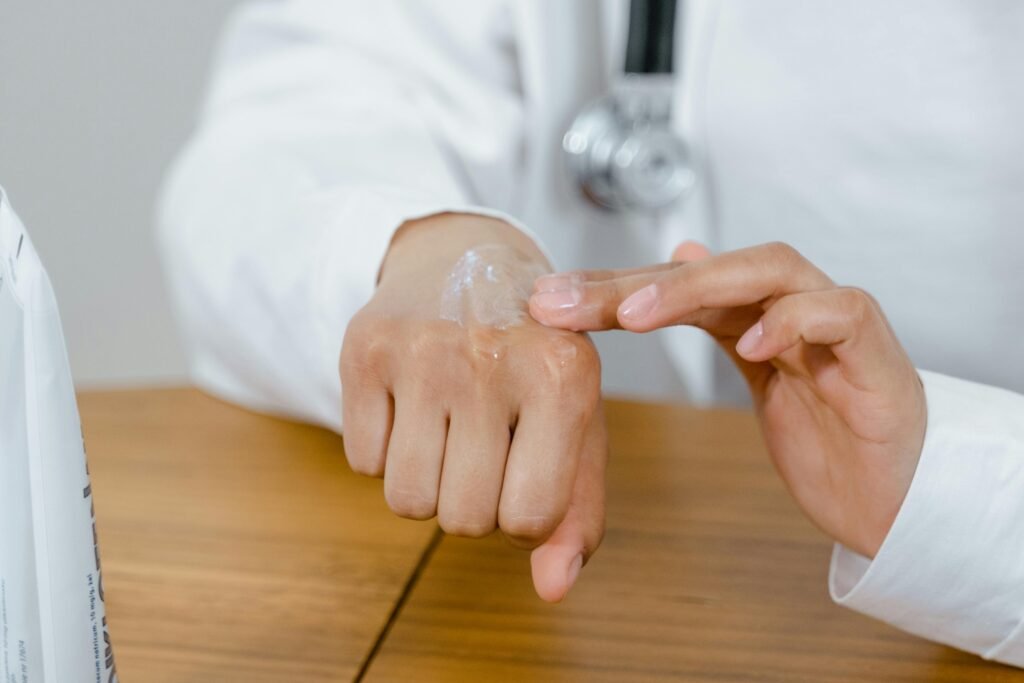
How Long Until You See Results?
This is a common question: how soon will you see changes if you start drinking more water today? While it varies, many people report improved skin texture and fewer breakouts within 2–4 weeks.
Still, consistent hydration over months is more beneficial than quick fixes. Remember, does drinking water really help your skin long-term? Yes, if you stay consistent.
Combining Hydration with Skincare Routine
To maximize benefits, hydration should complement—not replace—your skincare routine. Here’s how to align both:
Morning Routine:
- Cleanse
- Apply hydrating serum (e.g., hyaluronic acid)
- Moisturize
- Use SPF
Evening Routine:
- Double cleanse (especially if wearing makeup)
- Hydrating toner
- Night cream or facial oil
Also, drink a glass of water first thing in the morning and before bed. Doing so helps maintain hydration through sleep cycles.
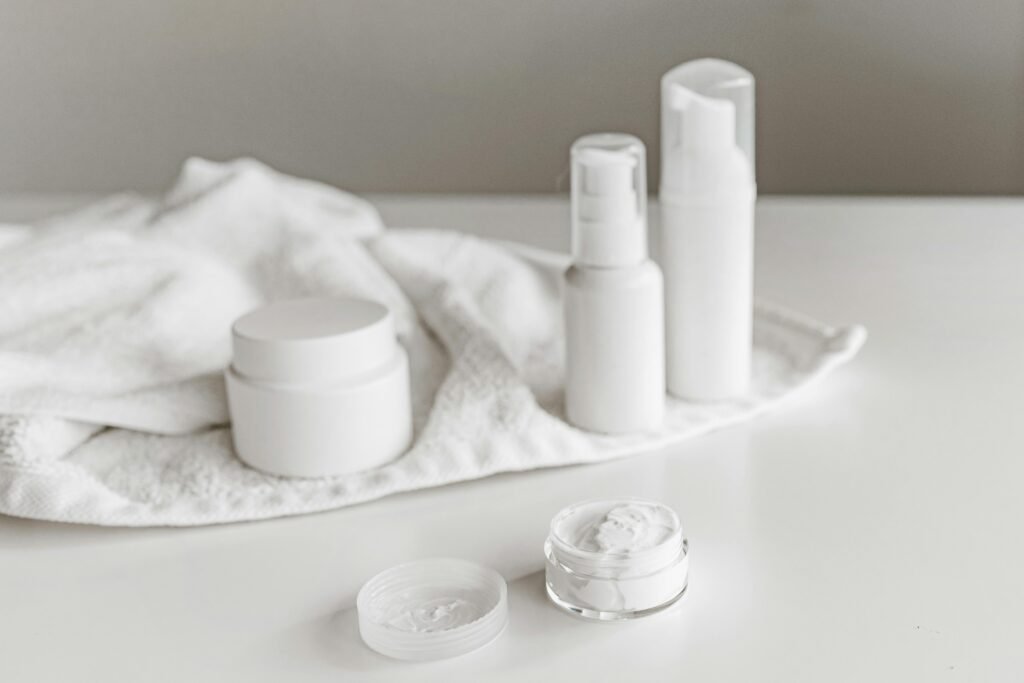
Conclusion: So, Does Drinking Water Really Help Your Skin?
After reviewing all the facts, the answer is yes, drinking water really does help your skin—but in conjunction with other healthy habits. It won’t replace a good skincare regimen or fix skin issues overnight, but it contributes to healthier, more radiant skin over time.
To see real improvement:
- Stay consistent
- Combine hydration with a balanced diet
- Use proper skincare products
- Get quality sleep
- Limit alcohol and caffeine
When people ask, does drinking water really help your skin, it’s important to set realistic expectations. Think of it as a foundation for good skin health, not a cure-all solution. You can also find the related topics on https://healthneno.com/
